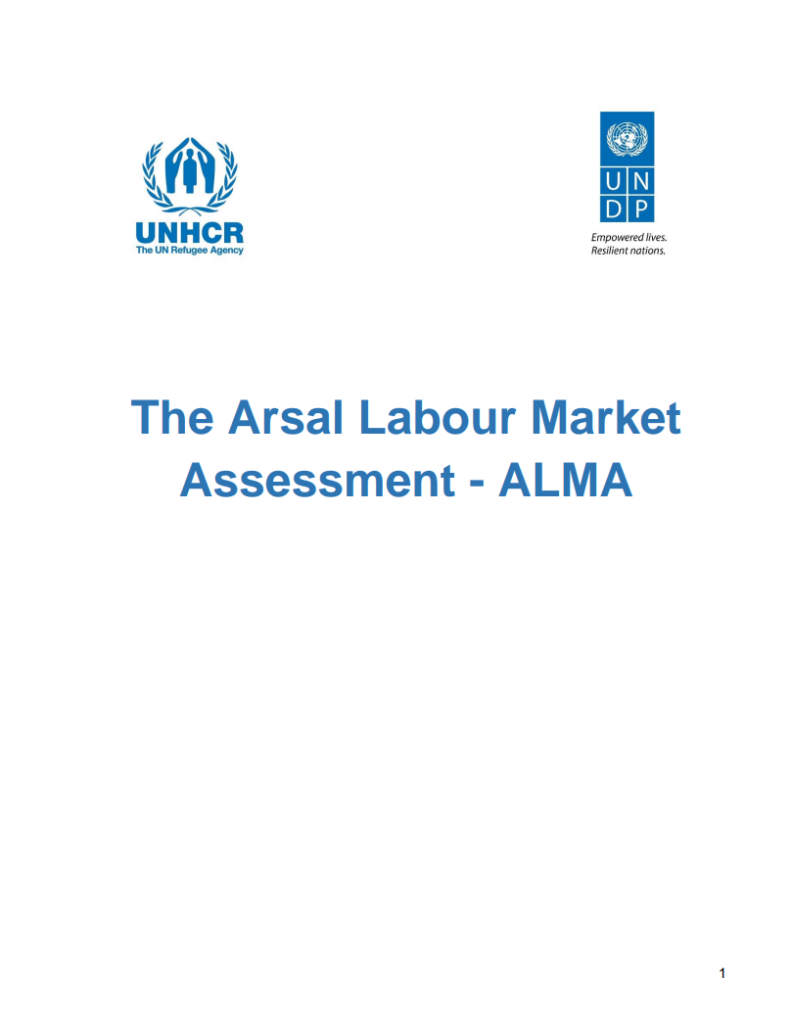Commissioned by UNDP and UNHCR, Triangle undertook a comprehensive study to understand and improve labor market conditions in Arsal, a region heavily impacted by the Syrian refugee crisis. This study aimed to explore employment trends and economic activities, identifying opportunities and barriers for both vulnerable Lebanese locals and Syrian refugees.
The methodology employed by Triangle included an extensive literature review to contextualize the economic status of Bekaa and Arsal historically and presently. The research team conducted a series of in-depth interviews with a variety of stakeholders, including local business owners and experts. Focus group discussions were held with Lebanese residents and Syrian refugees to better understand the impacts of the refugee crisis on local labor dynamics. Additionally, comprehensive surveys were carried out among residents to gauge employment rates and skill levels, while business assessments helped analyze employer needs and perceptions regarding employment in the area.
Findings from the study highlighted significant barriers such as regulatory challenges, limited market access, and skill mismatches. These factors hindered economic integration and employment opportunities for both communities. The study also pinpointed potential areas for economic growth and development, particularly through untapped local capacities and market opportunities. Based on these insights, Triangle recommended several strategic interventions to boost employment opportunities and economic activity. These included the development of targeted vocational training programs, support for entrepreneurial initiatives, and policy recommendations to facilitate easier access to markets. Furthermore, community engagement programs were suggested to enhance social cohesion and mutual economic benefits.
